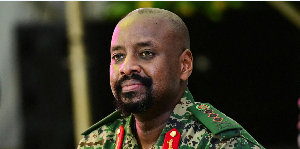Dr. Nii Moi Thompson - Defending the Indefensible -The issue of Ghana,
As the 9th Worst Managed Economy in the World
________________________________________
On June 18th 2010, Dr. Nii Moi Thompson published a strong article on the Ghanaweb in response to Forbes Magazine’s June 10th article that branded Ghana as the 9th worst managed economy in the World. Dr. Thompson’s “beef” with Forbes lies in the fact that he sees Forbes as a “US based right-wing-magazine that is a part of a conspiracy by foreign corporate interests to do Ghana in over its oil.” Really?
The central point of the Forbes’ article is that Ghana has abundance of “mineral reserves including gold, bauxite, and considerable amounts of offshore oil...” and, therefore, cannot comprehend the idea of the country being poor. Except of course, if the country’s economy is not effectively being managed. Because, it is a known fact that effectively managed countries with abundant resources like Ghana, tend to greatly benefit from their economies in the long-run, with incremental gains, and enhancement of multi-generational well being and wealth per capita of its residents.
Effective management in this context is for the country leaders to adapt global management practices to bring multinationals or a selection of global companies spanning multiple industries to come and operate in their countries and help develop the country economically. Asia Pacific countries used this strategy in the 1960s, to speed up their economic development programs and achieved overwhelming positive results.
Upon Kufour assuming the presidency of Ghana in 2001, he adapted this economic development paradigm, and created an enabling environment that enticed multi-nationals to come to Ghana to invest in droves. His strategy yielded instant results including the discovery of the massive offshore oil deposits - courtesy of Kosmos Energy, (among others), after having spent a whopping investment capital of $800 million for the oil exploration. In addition, GDP increased systematically for the eight years that the NPP was in power and, sky rocketed to a record level of 7.3% by the time they left office in 2008. This achievement and the business-friendly-climate made Ghana an ideal place to invest from emerging markets standpoint - almost to the level of that of the BRIC countries (Brazil, Russia, India and China). And, as result was given an unprecedented recognition by the international community beyond any imagination which - Dr. Thompson correctly pointed out in his article saying, “For years, the US media and successive US governments have been among the loudest cheerleaders for Ghana’s socio-economic accomplishments.” Nonetheless, he also bemoans: “But all that seemed to have changed recently when the Ghanaian government dared challenge the decision by Texas-based Kosmos to sell its shares in Ghana’s Jubilee oil fields to fellow American company Exxon without the fiduciary consent of the Ghanaian government, the custodian of the nation’s natural resources.”
Herein lies the homegrown problems that the article also listed as the causes of the predicament of the poor countries, including the following: Their governments discourage private investment--and economic growth--through policies of crony capitalism; expropriation or arbitrary enforcement of the laws…” Dr. Thompson vehemently denies that this is the situation in Ghana. But I beg to differ. For, there is plenty of evidence that justifies the Forbes Magazine’s claim that the World’s Worst Economies, each has at least, one common trait that drives prospective investors away and in turn, breeds poverty. In the case of Ghana, its trait is - expropriation or arbitrary enforcement of the laws, as demonstrated by the following examples:
1. In March 1999, Rawlings used arbitrary laws to bulldoze a newly built hotel in Accra owned to a Ghanaian businessman
2. Again in 1999, he bulldozed the Mauli Chop Bar (a Women’s Owned Small Business) Enterprise.
3. In April 2000, he bulldozed 35 houses belonging to his would-be in laws, whose son jilted his daughter.
4. In January 1994, Rawlings ordered Ghanaians to boycott the purchasing of Mr. Appiah Menka’s company products, including Apino Soap, King Soap, etc.
5. In August 1994 he chased out the Chief Executive of Regimauel Gray Ltd. a Texas based Company operating in Ghana, after having been brutally attacked two weeks prior.
6. In 1999 he took away operating licenses of several small business financial institutions and forced them to close-down.
7. Not to mention the hundreds of companies he arbitrary seized in the course of his so called June 4th Revolution, after the killings.
Notice that none of these shenanigans took place under Kufour’s watch. Unfortunately, the same is not true for the Mills administration. Because no sooner than his taking office did the once trusted business environment he inherited was muddied with resource nationalism and draconian laws, with the objective to cripple foreign investments in the country for reasons best known to themselves.
1) Dr. Thompson theorized that it is Ghana law for foreign investors to consider Ghanaian citizens first, in the event of, off loading equity interest in any investment venture in Ghana. Fair enough. But, in the case of the Kosmos Energy and Exxon deal, Ghana had a duty and great opportunity to have let Kosmos known years in advance that it is interested in its shares if it had any future plans to sell them. Unfortunately, this never materialized, according to Kosmos. Yet, immediately the company announced that it was negotiating with Exxon to buy its Ghana assets, all hell broke loose with Ghana crying foul and thereby invoking arbitrary laws to torpedo the transaction.
2) In like manner, in November 2008, a Norwegian oil company in the name of Aker Solutions was awarded a license for an ownership interest and operatorship of a petroleum offshore exploration and development business in Ghana. The petroleum agreement had been negotiated with the national oil company GNPC, the NPP government and, ratified by Parliament. However, the Mills administration yanked Aker’s license away, in January this year without any due process, but on grounds that, the license was invalid. Never mind the fact that the agreement was dully executed by Aker and the two branches of government - the executive and the legislative branches of the Ghana Government.
3) Then comes Vodaphone, whose investment agreement in the purchase of a 70% interest in Ghana Telecom, also approved by parliament, is now considered questionable and, therefore, has to be re-reviewed by the new administration. The list goes on and the devastating impact this act of thuggery is having on Ghana - within the framework of a rapidly changing networked global economy - seems to be of no concern to the Ghanaian leadership.
Against this background, I am aghast at Dr. Thompson’s bewilderment of the turn of events against Ghana and his lamentation that the world has changed its tone towards Ghana because, the government dares to challenge the decision of a foreign investor to sell its assets. The fact of the matter is investing in a foreign country is an act of trust and when that trust is betrayed, investors are left with no alternative than to exit the country, especially while they are ahead. But that said, it must also be pointed out that the ongoing saga in Ghana is beyond investor betrayal but, a more sinister and conspiratorial act, designed to discredit and dismantle Kufour’s brilliant achievement which would have helped to incrementally build upon to achieve sustainable economic growth for Ghana. Obviously there seem to be an invisible hand behind what is going on in Ghana.
But if however, this is the NDC government’s style of effective management to bring prosperity to Ghanaians then, I will like to see their ineffective one. Because, this approach is nothing but a quintessential country risk of the highest kind which, is destined to drive foreign and all other investors away for years to come. But more importantly, the ongoing precarious situation in Ghana also poses a serious national security threat; in that, as the Ghanaian politicians continue to dwell on the past to settle political scores at the expense of the people, it leaves the country vulnerable for a villain attack especially, with the bases loaded with massive goodies for looting.
Remember, there was a time when a “certain somebody” staged a coup in 1979, for the simple reason that some military officers took loans of no more than $50.00 each, from banks and killed them all because, he deemed their acts as crimes against the state. But on hindsight, it was discovered that his act was a strategy to enrich him and his family but not, to salvage Ghanaians from any ruins as they were made to believe. This time around, with the battlefield tied to billions of petro-dollars, and the finger pointing game already started, and a sitting president being harangued for not putting political opponents in prison at whim; it will not be far-fetched to predict that his coming back is soon. And, may God help us. Because should this happen, it will be an all out war, with foreign backings not only from aggrieved investors but, also from interested parties who wants in-on-the-action. It is then and only then shall we truly know who wish to “do Ghana in over its oil.”
Joseph S. Adomakoh, Jr.
New York, NY
June 28, 2010
Opinions of Tuesday, 29 June 2010
Columnist: Adomakoh, Joseph Smith














